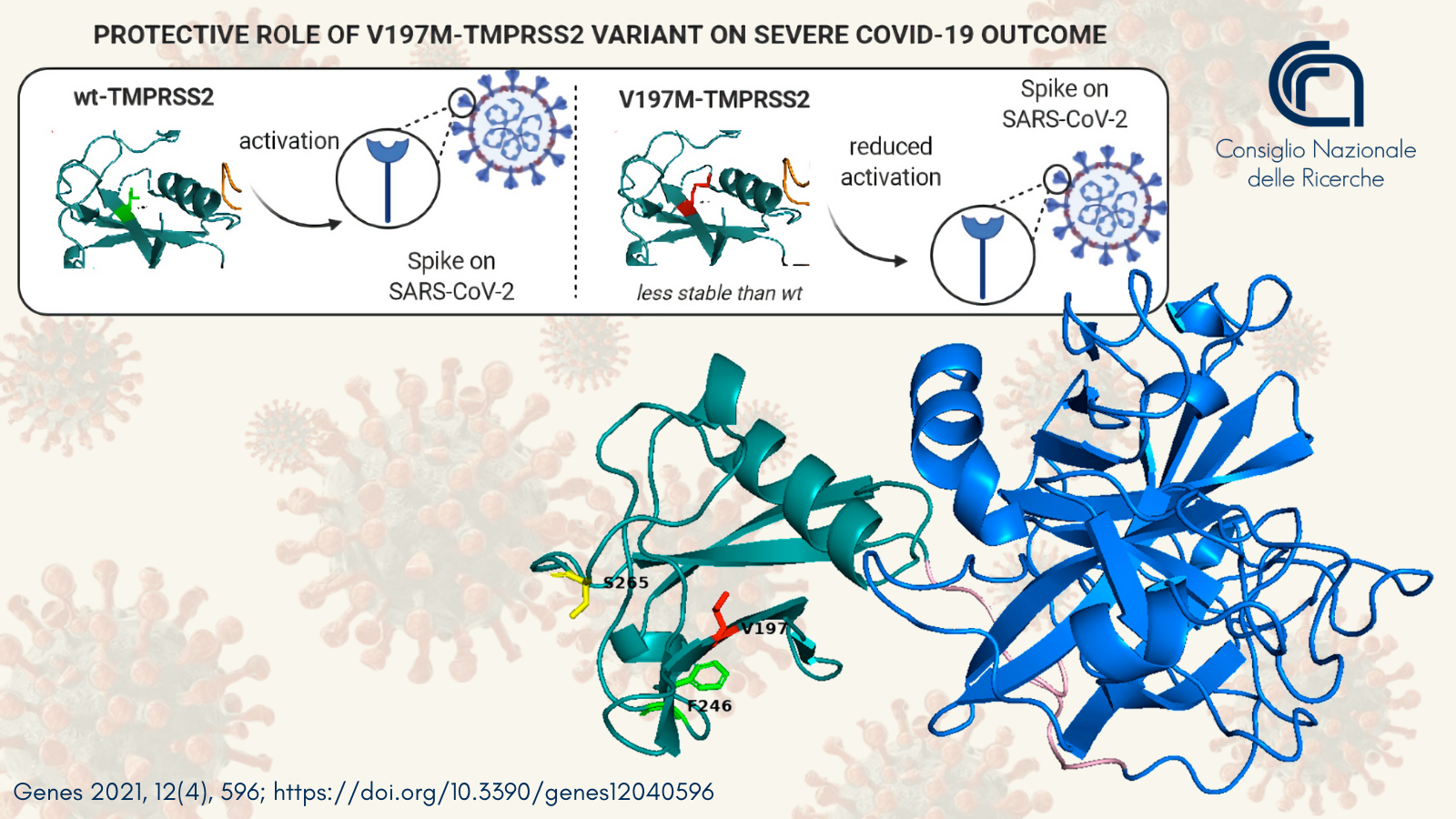What will be new in anti Covid therapies

Here are the new perspectives to combat severe Sars-Cov-2 infection according to a research team of the CNR-University of Naples
A group of researchers from the Institute of Biomolecular Chemistry of the National Research Council ( Cnr-Icb ) and the Federico II University of Naples, used data mining techniques applied to bioinformatics to predict which human genes could influence the onset or severity of Covid-19 cases.
The results provided a tool to identify those at risk of developing a severe form of the infection and highlighted a therapeutic target for the development of new drugs .
The study, published in the journal Genes, was conducted by processing data referring to a population of 1177 patients affected by Covid-19 in Italy, and highlighted the protective effect exerted by a variant of the TMPRSS2 gene in young men and women. elderly.
"The TMPRSS2 gene is used in the cell as a template for the synthesis of an enzyme, a protease, capable of acting on other proteins, in this specific case this protease acts on the Spike protein of the coronavirus which is known to be a key element for the establishment of the infection ”, explains Giuseppina Andreotti, researcher of the Cnr-Icb, who coordinated the research team together with Maria Vittoria Cubellis, associate researcher of the Cnr-Icb and professor of the Biology Department of the Federico II University of Naples. "The data showed that in these groups of patients, young men and elderly women, those who had a mutation in the TMPRSS2 gene had a less severe clinical picture than those who did not have the mutation."
A list of possible polymorphisms (genetic mutations not causing disease present in a population with an incidence greater than 1%) that could be correlated with the severity or with the onset of Covid-19 was described in a first work published in the European journal of medical genetics . The list includes among others a common polymorphism in the TMPRSS2 gene.
"In particular, the variant of TMPRSS2 identified and most represented in the population causes the substitution of an amino acid in the protease, instead of the valine in position 197 of the sequence there is methionine", specifies the researcher Cnr-Icb. The mutated protein in this way has been studied "in silico", that is with computer mathematical simulations and thanks to programs for the prediction of the chemical-physical properties of the proteins it has been shown that it is reasonable to assume that it has a reduced biological activity compared to that not changed.
The transition from "in silico" theoretical prediction to confirmation supported by clinical data was possible thanks to a collaboration with Alessandra Renieri, professor at the University of Siena and coordinator of the network of Italian research institutes and hospitals "Gen-Covid Multicenter Study" . "This genetic observation could pave the way for an interesting therapeutic relapse since drugs capable of inhibiting or reducing the activity of the TMPRSS2 protease, as well as the mutation in relatively protected people, could be used for the treatment of Covid-19" , concludes Andreotti. “Such drugs exist although they are used for the treatment of other pathologies. These are camostat mesylate and nafamostat mesylate. Replacing these drugs would therefore provide a new and valid tool for the treatment of Covid-19 ".
This is a machine translation from Italian language of a post published on Start Magazine at the URL https://www.startmag.it/sanita/che-cosa-ci-sara-di-nuovo-nelle-terapie-anti-covid/ on Mon, 10 May 2021 10:15:18 +0000.
